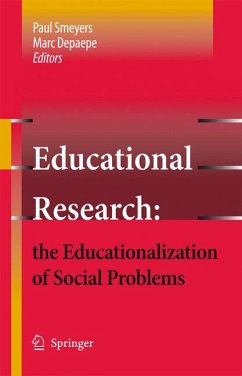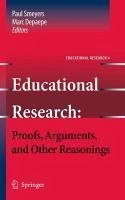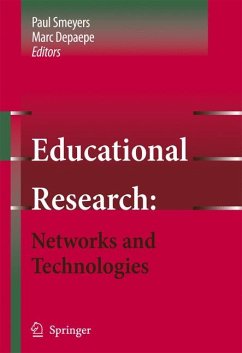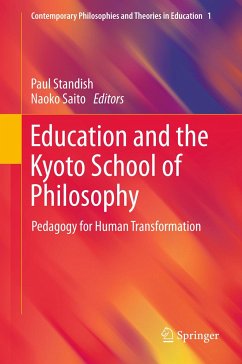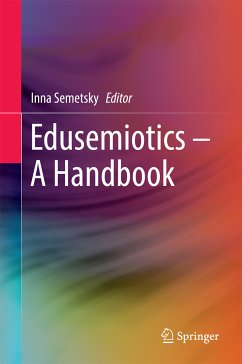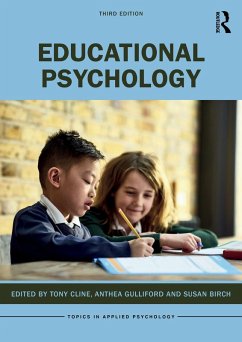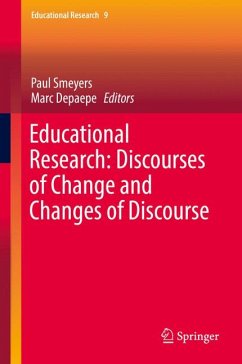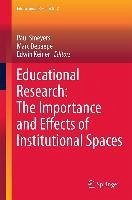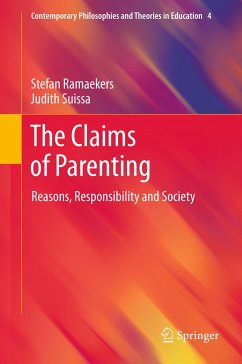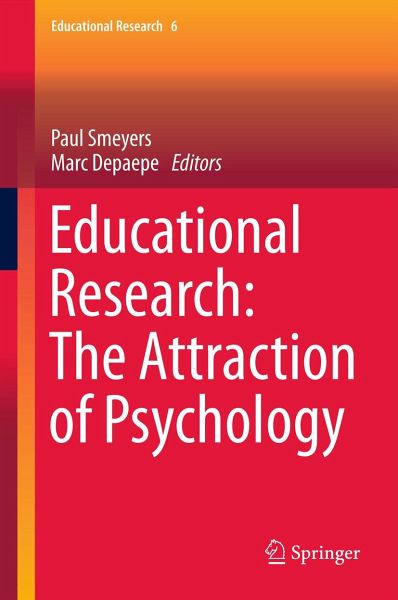
Educational Research: The Attraction of Psychology (eBook, PDF)
Versandkostenfrei!
Sofort per Download lieferbar
72,95 €
inkl. MwSt.
Weitere Ausgaben:

PAYBACK Punkte
36 °P sammeln!
The closely argued and provocative contributions to this volume challenge psychology's hegemony as an interpretive paradigm in a range of social contexts such as education and child development. They start from the core observation that modern psychology has successfully penetrated numerous domains of society in its quest to develop a properly scientific methodology for analyzing the human mind and behaviour. For example, educational psychology continues to hold a central position in the curricula of trainee teachers in the US, while the language of developmental psychology holds primal sway o...
The closely argued and provocative contributions to this volume challenge psychology's hegemony as an interpretive paradigm in a range of social contexts such as education and child development. They start from the core observation that modern psychology has successfully penetrated numerous domains of society in its quest to develop a properly scientific methodology for analyzing the human mind and behaviour. For example, educational psychology continues to hold a central position in the curricula of trainee teachers in the US, while the language of developmental psychology holds primal sway over our understanding of childrearing and the parent-child relationship.
Questioning the default position of modern psychology as a way of conceptualizing human relations, this collection of papers reexamines key assumptions that include psychology's self-image as a 'scientific' discipline. Authors also argue that the dogma of neuropsychology in education has demoted concepts such as 'emotion', 'feeling' and 'relationship', so that they are now 'blind spots' in educational theory. Other chapters offer a cautionary analysis of how misshapen notions of psychology can legitimize eugenics (as in Nazi Germany) and poison racial attitudes. Above all, has psychology, with its focus on individual merit, been complicit in hiding the impacts of power and privilege in education? This bracing new volume adopts a broader definition of education and childrearing that admits the essential contribution of the humanities to the proper study of mankind.
This publication, as well as the ones that are mentioned in the preliminary pages of this work, were realized by the Research Community (FWO Vlaanderen / Research Foundation Flanders, Belgium) Philosophy and History of the Discipline of Education: Faces and Spaces of Educational Research.
Questioning the default position of modern psychology as a way of conceptualizing human relations, this collection of papers reexamines key assumptions that include psychology's self-image as a 'scientific' discipline. Authors also argue that the dogma of neuropsychology in education has demoted concepts such as 'emotion', 'feeling' and 'relationship', so that they are now 'blind spots' in educational theory. Other chapters offer a cautionary analysis of how misshapen notions of psychology can legitimize eugenics (as in Nazi Germany) and poison racial attitudes. Above all, has psychology, with its focus on individual merit, been complicit in hiding the impacts of power and privilege in education? This bracing new volume adopts a broader definition of education and childrearing that admits the essential contribution of the humanities to the proper study of mankind.
This publication, as well as the ones that are mentioned in the preliminary pages of this work, were realized by the Research Community (FWO Vlaanderen / Research Foundation Flanders, Belgium) Philosophy and History of the Discipline of Education: Faces and Spaces of Educational Research.
Dieser Download kann aus rechtlichen Gründen nur mit Rechnungsadresse in A, B, BG, CY, CZ, D, DK, EW, E, FIN, F, GR, HR, H, IRL, I, LT, L, LR, M, NL, PL, P, R, S, SLO, SK ausgeliefert werden.




